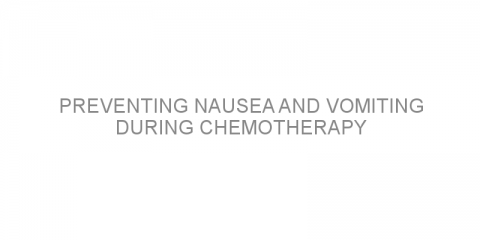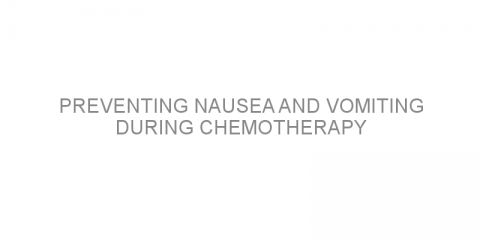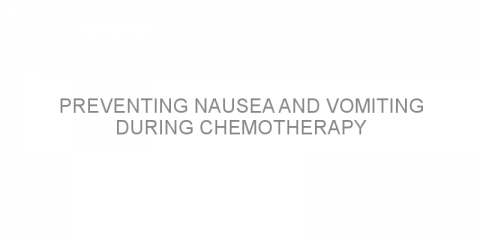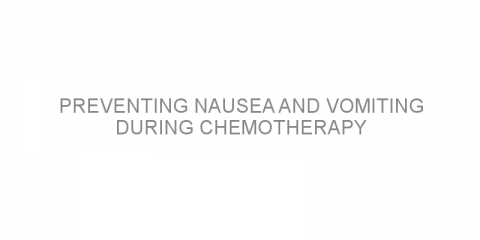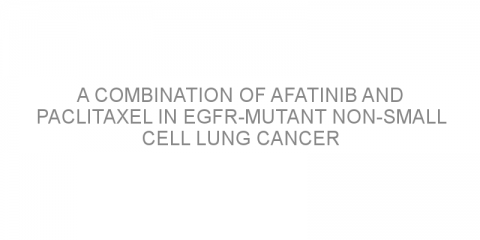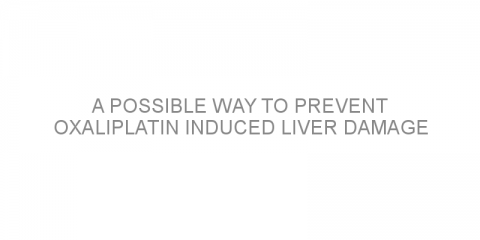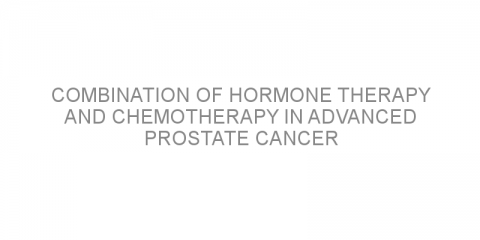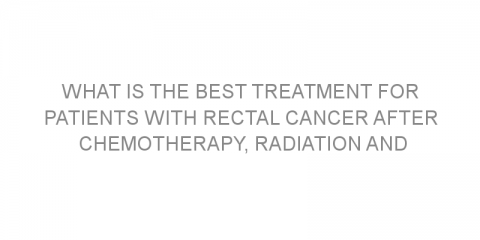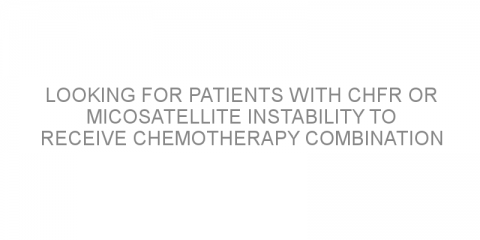In a nutshell This review was conducted in an effort to update current guidelines for the prevention of nausea and vomiting in patients receiving chemotherapy. According to this update by the American Society of Clinical Oncology, all patients who receive highly emetogenic chemotherapies (treatments known to cause nausea and vomiting) should be...
Read MoreOngoing treatment(s)-Chemotherapy Posts on Medivizor
Preventing nausea and vomiting during chemotherapy
In a nutshell This review was conducted in an effort to update current guidelines for the prevention of nausea and vomiting in patients receiving chemotherapy. According to this update by the American Society of Clinical Oncology, all patients who receive highly emetogenic chemotherapies (treatments known to cause nausea and vomiting) should be...
Read MorePreventing nausea and vomiting during chemotherapy
In a nutshell This review was conducted in an effort to update current guidelines for the prevention of nausea and vomiting in patients receiving chemotherapy. According to this update by the American Society of Clinical Oncology, all patients who receive highly emetogenic chemotherapies (treatments known to cause nausea and vomiting) should be...
Read MorePreventing nausea and vomiting during chemotherapy
In a nutshell This review was conducted in an effort to update current guidelines for the prevention of nausea and vomiting in patients receiving chemotherapy. According to this update by the American Society of Clinical Oncology, all patients who receive highly emetogenic chemotherapies (treatments known to cause nausea and vomiting) should be...
Read MoreA combination of afatinib and paclitaxel in EGFR-mutant non-small cell lung cancer
In a nutshell This study aimed to determine the efficacy of a combination of the anticancer drugs afatinib (Gilotrif) and paclitaxel (Taxol) to treat non-small cell lung cancer (NSCLC), compared to chemotherapy alone. The study found that a combination of these drugs significantly improved progression free survival (PFS, time from treatment until...
Read MoreNew chemotherapy options for the treatment of advanced melanoma
In a nutshell The authors evaluated the safety and effectiveness of nab-paclitaxel (Abraxene), a chemotherapy, in patients with advanced melanoma. The authors found that nab-paclitaxel was safe, effective, and provided favorable outcomes. Some background In advanced melanoma, cancer spreads from the skin to other parts of the body. This is called...
Read MoreA possible way to prevent oxaliplatin induced liver damage
In a nutshell This study investigated how oxaliplatin chemotherapy causes liver damage. The authors provided insight into the mechanism of liver injury, and suggest that bevacizumab (Avastin) may protect against such injury. Some background Oxaliplatin is a chemotherapeutic drug which is commonly used to treat advanced colorectal cancer (CRC)....
Read MoreCombination of hormone therapy and chemotherapy in advanced prostate cancer
In a nutshell The authors aimed to determine whether hormone drugs abiraterone (Zytiga) and enzalutamide (Xtandi) and chemotherapy drug cabazitaxel (Jevtana) improved overall survival (patients who were still alive after treatment) in prostate cancer patients with advanced, hormone-resistant (castration-resistant) prostate...
Read MoreFactors associated with disease progression
In a nutshell This study explored factors that could predict disease progression following chemotherapy in breast cancer patients. The authors found that while survival rates were excellent following treatment, patients with faster-growing tumors and those with the luminal B/HER negative or triple negative subtypes had a higher risk of disease...
Read MoreWhat is the best treatment for patients with rectal cancer after chemotherapy, radiation and surgery?
In a nutshell This study compared the effectiveness of oxaliplatin (Eloxatin) with 5-fluorouracil (5-FU Oncofluor, Fluorblastin) as post-surgery treatment for patients with rectal cancer. Some background The standard treatment for rectal cancer is chemotherapy and radiation therapy before surgery. The effectiveness of post-surgery...
Read MoreLooking for patients with CHFR or micosatellite instability to receive chemotherapy combination
In a nutshell This phase 2 trial located in Maryland, United States, aims to determine whether a combination of gemcitabine (Gemzar) and docetaxel (Taxotere) is effective in patients with metastatic colorectal adenocarcinoma with CHFR and/or microsatellite instability. Patient's resposne to treatment will be measured. The details...
Read MoreLong-term survival in advanced melanoma–benefit of ipilimumab and dacarbazine
In a nutshell The authors analyzed the 5-year survival rate in advanced melanoma patients treated with a combination of ipilimumab (Yervoy) and dacarbazine (DTIC, DTIC-Dome) in a phase III clinical trial. Some background In advanced melanoma (stage III/IV), cancer spreads from the skin to other parts of the...
Read More
